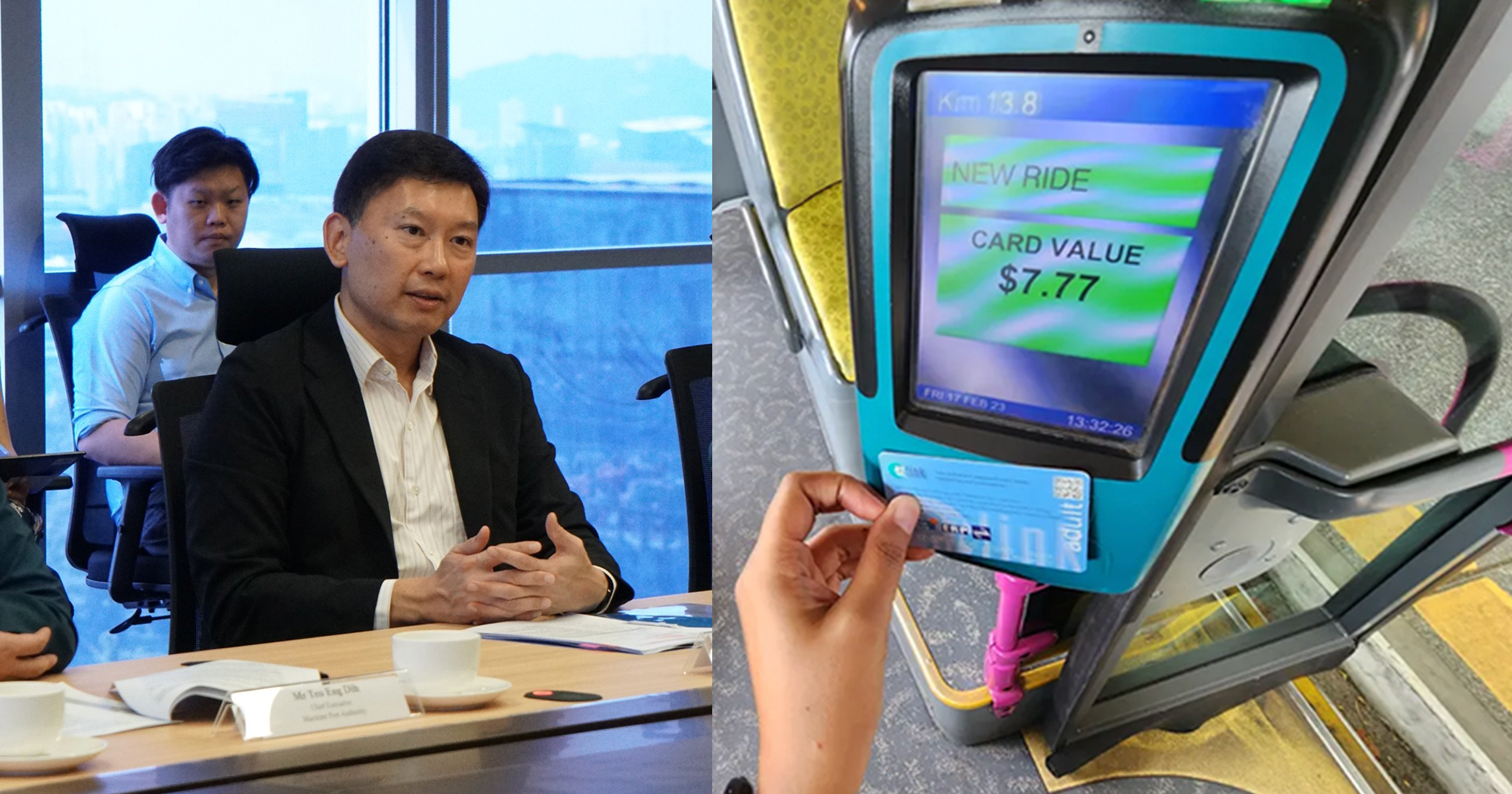The authorities' decision to phase out legacy public transport cards was a "judgment error".
Speaking to reporters on Jan. 26, transport minister Chee Hong Tat said they had underestimated how much the public had wanted to retain features of the legacy system — such as the ability to view fares and card balances on public transport fare readers, something currently not possible on the newer SimplyGo system.
"I apologise to our commuters for what happened. We will learn from this and we will do better in future," Chee said.
Non-SimplyGo cards to stay till at least 2030
Chee said the legacy system, originally scheduled to be phased out on Jun. 1, 2024 as it was "nearing the end of its operational lifespan", would have its lifespan extended till "at least 2030".
The older system utilises "card-based ticketing" (CBT) and includes older EZ-Link adult cards which have not been upgraded to SimplyGo as well as NETS FlashPay cards.
Concession cardholders, such as seniors, students, Workfare Transport Concession cardholders, and persons with disabilities, would not have been impacted by the initially-planned transition.
"We will decide later whether we need to extend the CBT system beyond 2030," Chee said.
He added that a "key factor" to the decision would be whether a solution can be found to overcome the current inability to show fare deductions and account balances via fare gates and bus card readers.
Such a feature is currently untenable, and might lead to long queues and disrupt the flow of commuters, Chee said.
While there is no technical solution available in Singapore or overseas, Chee said, "we will work with other government agencies and also industry partners" on the matter.
S$40 million cost
Chee elaborated on the previously-mentioned S$40 million cost to keep the current system in place.
He explained that this cost has to be incurred because the legacy system has reached the end of its life.
As such, money will need to be spent to purchase new hardware and equipment, as well as to operate the system over the next few years.
"We will not be able to avoid this cost," he said, adding:
"But in return, by spending that S$40 million, we will have an extended CBT system that can serve the needs of adult commuters who prefer to retain this feature of being able to view their fare deductions and card balances at the fare gates and bus card readers."
He added that the LTA would do its best to spend prudently and reduce costs where possible.
Regardless, the S$40 million cost would be borne by the government and would not impact public transport fares, Chee said.
Government underestimated preferences
Chee explained that there had been a consultation process by LTA prior to the decision on the SimplyGo transition.
LTA conducted focus group discussions, as well as trials with over 1,000 commuters who were issued ABT cards.
Partcipants of the trials, including seniors, adults, and students, used the ABT cards for "a few months" before their feedback was sought.
Chee said that seniors expressed a preference "to be able to continue to view the fare deductions and card balances at the fare gates and bus card readers."
"Arising from this feedback, LTA decided not to shift them over to the SimplyGo ABT system, but to retain the concession card system as a CBT system," Chee said.
LTA also acted on feedback to improve the SimplyGo app's user experience, and introduced improvements such as enabling the app to send users push notifications.
Nonetheless, Chee noted:
"If we had consulted more widely, and we had gathered views from a wider group of commuters before we made the decision... we would have come across the stronger reactions and the stronger preferences that some commuters have expressed."
He also acknowledged these commuters' preference for the legacy system and its ability to display fare deductions and card balances while tapping out, saying it was a "useful" feature that commuters are accustomed to.
In making the decision to start the transition, Chee said LTA had "underestimated the strong preference of some commuters".
"This was a judgment error on our part, and I apologise to our commuters for what happened. We will learn from this and we will do better in future," he said.
"The important thing is that we want to give commuters options that they can choose from.
We understand your feedback and concerns. We respect your preferences and we want to give you this option to continue to be able to choose which system best meets your needs."
Related stories
Top image from Chee Hong Tat/Facebook and Syfa & Ganjar
If you like what you read, follow us on Facebook, Instagram, Twitter and Telegram to get the latest updates.



